SUSTAINABLE PACKAGING
Nestlé’s global vision is that none of our packaging, including plastics, ends up in landfill or as litter, including in oceans, lakes, or rivers. At La Vie, we are embarking on a journey with collective actions towards a waste-free future, and our commitment to plastic neutrality by 2025.


LESS VIRGIN PLASTIC
Strong and lightweight PET (polyethylene terephthalate) is widely used for packaging beverages to protect well the water they contain. PET is also completely recyclable and the most recycled plastic worldwide. However, there’re concerns about its impact on environment as they are found as litter in oceans, affecting negatively on marine species and biodiversity.
Therefore, we are targeting to reduce our virgin plastic usage by one third by 2025 vs 2019 through collective actions.
Food-grade recycled plastic in our bottles
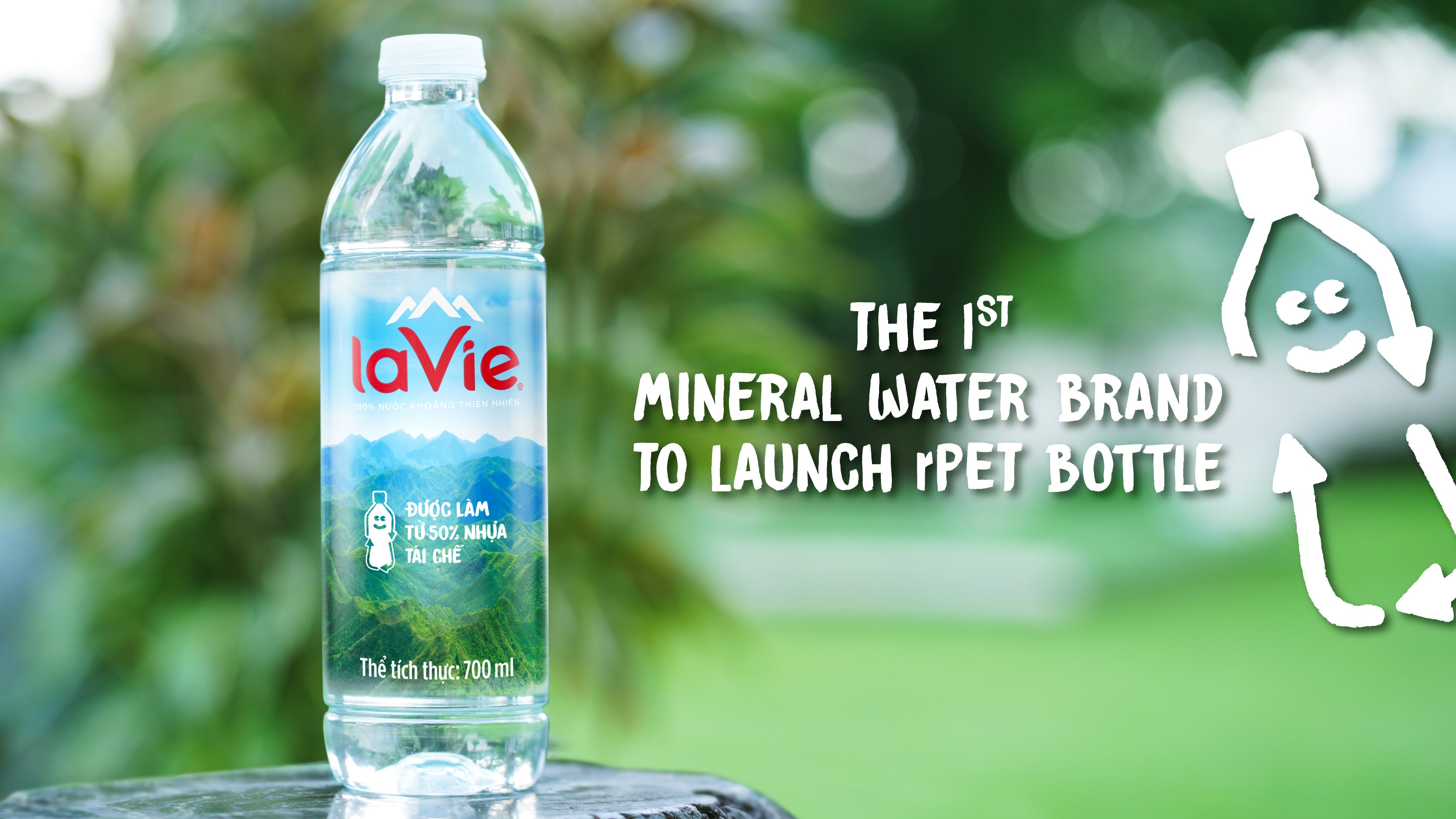

Food-safe recycled PET comes from end-of-life packaging that contained drinks and have the same properties as new PET. It has already had one life, then been collected, sorted and turned into a new reusable plastic material by modern technology, qualifying food-contact standards.
We have launched La Vie products (700ml and 350ml SKUs) with 50% recycled content, helping reduce virgin plastic. The use of recycled material helps more post-consumption drink bottles be collected and reborn with a new life instead of being dumped in landfills.
Pioneering alternative packaging materials
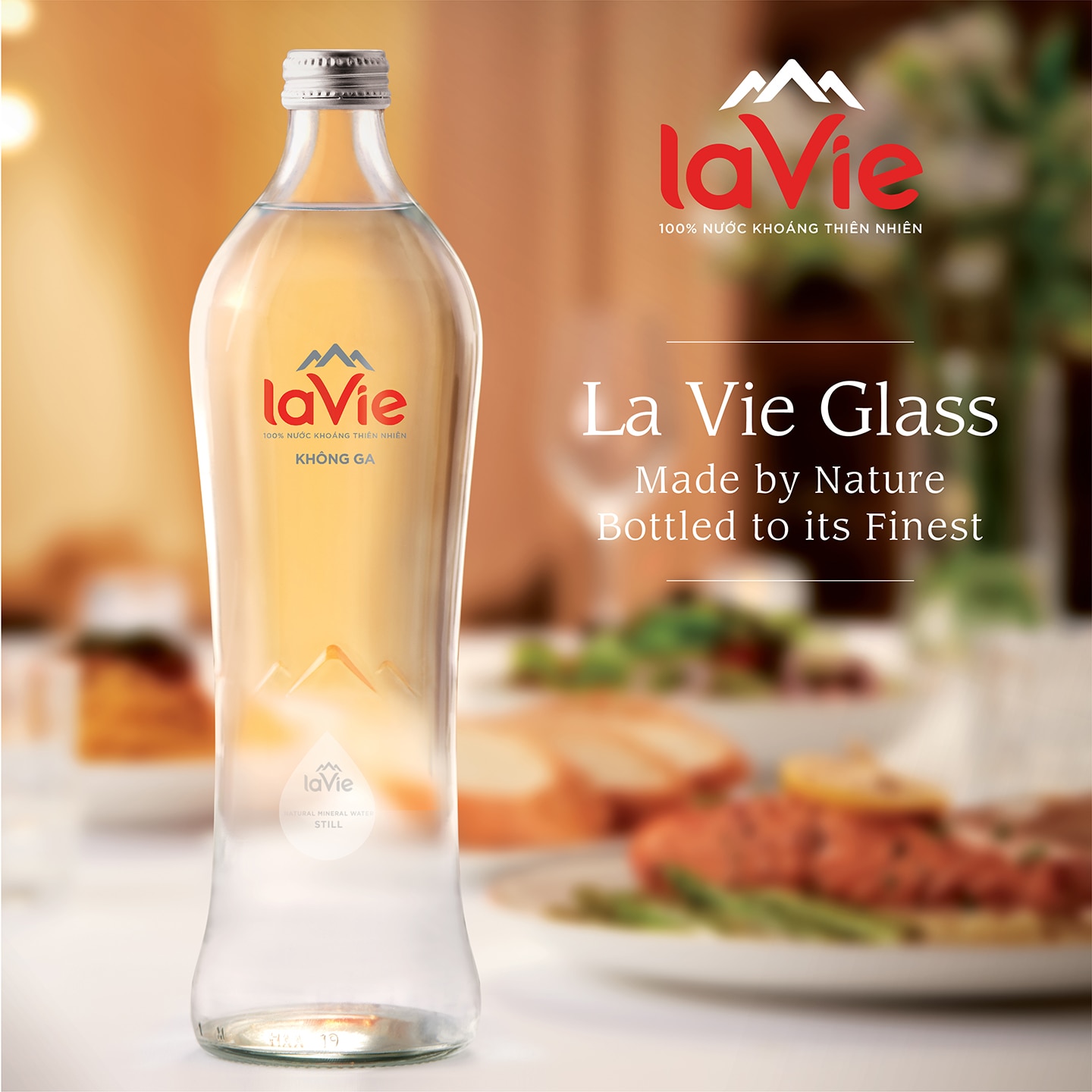

Nestlé has created the Nestlé Institute for Packaging Sciences to develop sustainable packaging materials and collaborate with industry partners to scale-up research and innovation. At La Vie, we are exploring initiatives to develop environmentally friendly packaging.
OUR JOURNEY TOWARDS A WASTE-FREE FUTURE
We are deploying solutions to protect nature by supporting the circular economy for packaging, recovering resources at the end of a product’s life, that helps reduce plastic waste. It requires a closed-loop system where product is designed for recycling and recycling infrastructure is supported.
Designing packaging for recycling
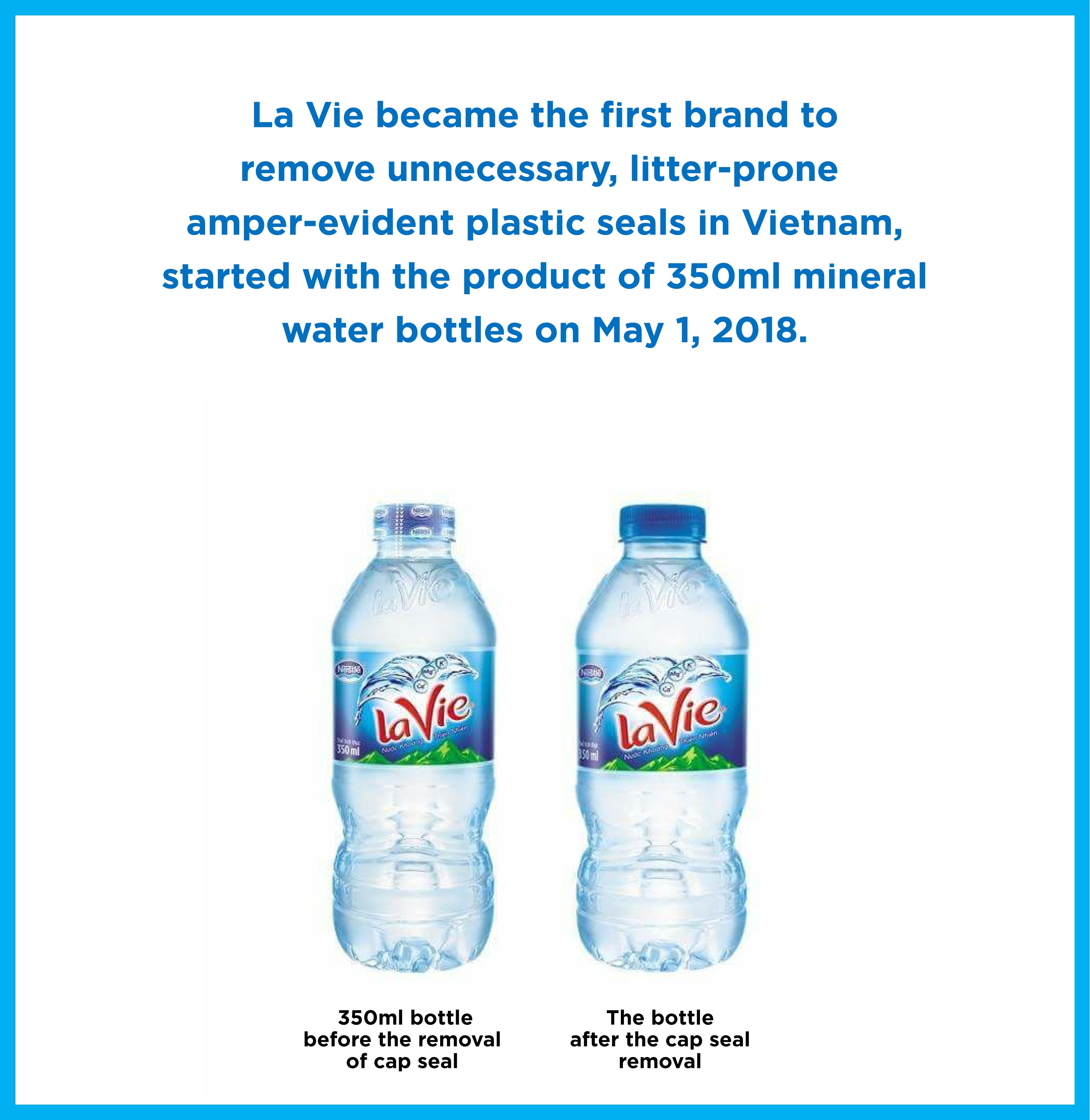

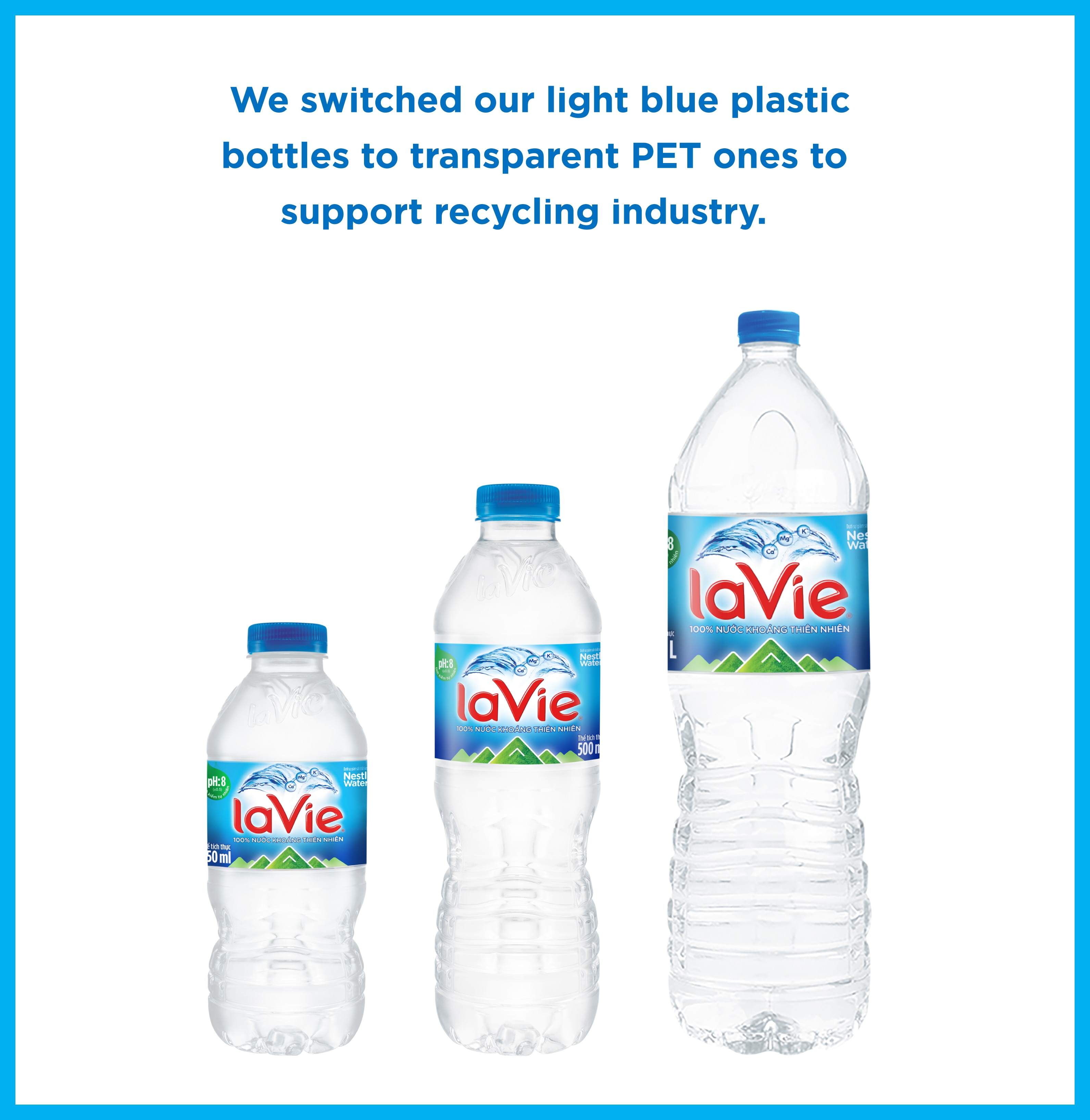

We pioneer elimination of unnecessary and liter-prone parts of our packaging and implementing initiatives to support recycling. Currently, almost of La Vie products are completely recyclable.
Collaborating to promote collection and recycling in Vietnam, and advocate for right and effective legislation of Extended Producer Responsibility (EPR)
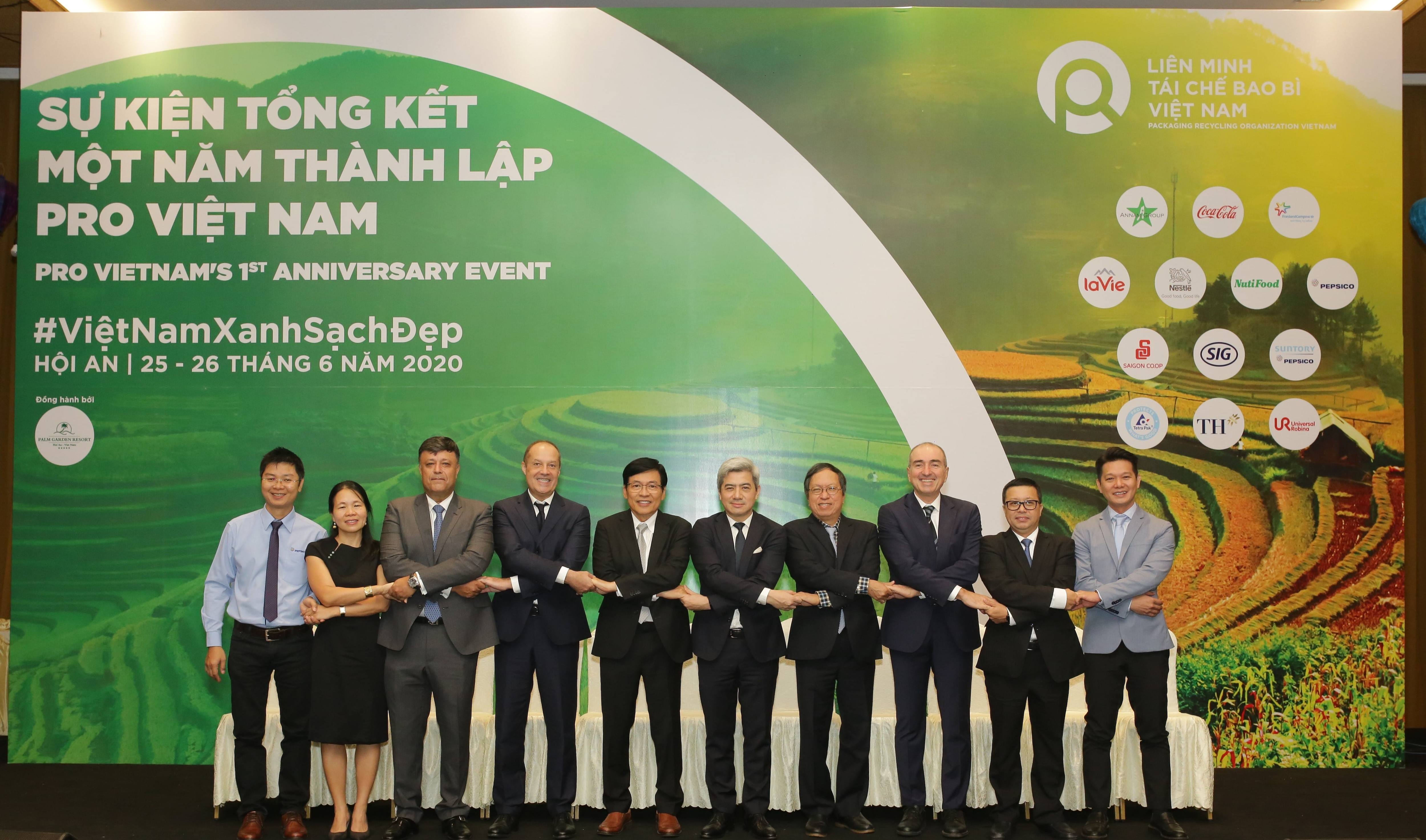

La Vie and Nestlé Vietnam that are members of Nestlé, joined hands with leading companies in the consumer goods and packaging industry to set up a packaging recycling alliance in Vietnam, named Packaging Recycling Organization Vietnam (PRO Vietnam) in June 2019. Currently, it is expanded to 19 members from nine. The alliance aims to drive the circular economy and make the recycling of packaging more accessible and sustainable.
Supporting and encouraging the production of food-safe recycled plastic from bottles collected in Vietnam
In Vietnam, it is estimated that more than 1.8 million tons of plastic waste is discharged into the environment each year, but only 27% of it is recycled and utilized by recycling facilities and businesses. Food-grade recycled plastic (rPET) is considered as a sustainable solution to help reduce plastic waste, turning post-consumption plastic bottles into a resource.
Therefore, we are making efforts to support local recycling industry.
We launched bottled mineral water that is packaged in 50% rPET early 2021, becoming the first mineral water brand to use bottles made from the food-grade recycled plastic imported from Europe as the first step to contribute to creating a demand for the material and encouraging local businesses to invest in collecting and producing the recycled plastic. We aim to achieve 25% of our packaging with recycled content by 2025.
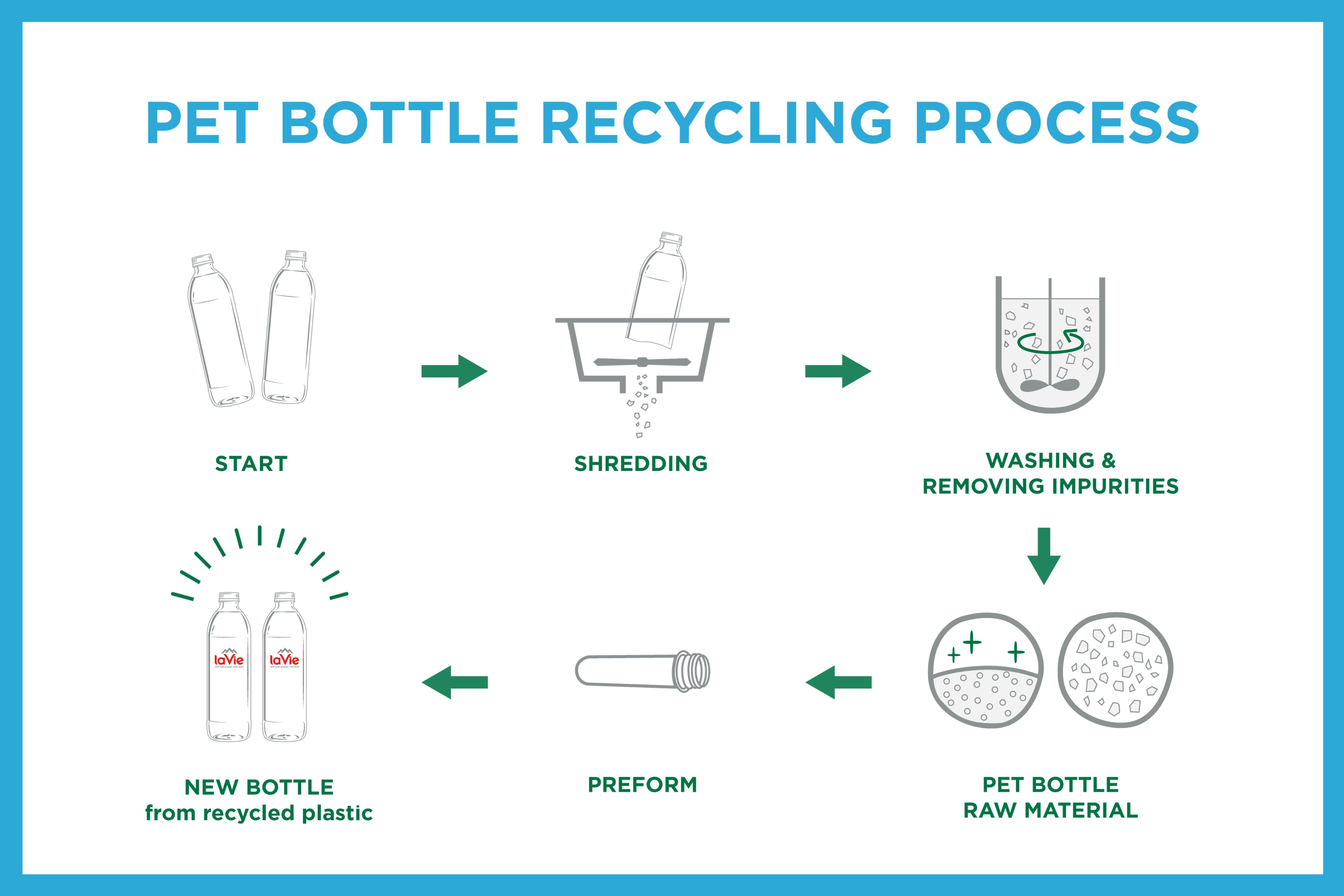

When properly sorted, collected and recycled, plastic bottles become a valuable resource.
We provide financial support to help local recycling business implement initiatives to improve the quality and quantity of collected and sorted bottles through enhanced cooperation with plastic collection stations in many provinces. In rPET production, the quality of the plastic bottles collected plays an important role as only drink bottles that meet the quality requirements can be recycled for food-grade material.
Successfully implementing circular economy model for La Vie 5-gallon product
- The 5-gallon bottles are collected directly from consumers and transported to the factory.
- At the factory, they will go through a strictly controlled process with 24 steps to ensure quality and safety for reuse.
- The bottles can be reused up to 15 times if their quality is guaranteed.
- The bottles will be recycled if they can no longer be reused.
